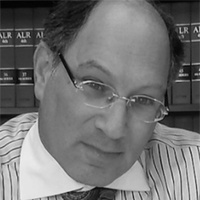Galesville White Collar Crime Lawyer, Maryland, page 2
Sponsored Law Firm
-
 x
x

Click For More Info:
-
Isaac Klein Attorney at Law
1 N Charles Street Suite 350 Baltimore, MD 21201» view mapAccident & Injury Law You Need Isaac To Defend You!
Issac Klein has been serving the citizens of Maryland since opening his practice in 1982. If your claim cannot be settled for a fair amount, he can prepare to file suit and go to trial.
800-768-4560
Megan E. Coleman
Lawsuit & Dispute, Federal Appellate Practice, White Collar Crime, Criminal
Status: In Good Standing
Rodney Dakita Garcia
Litigation, Estate, White Collar Crime, Credit & Debt
Status: Inactive Licensed: 34 Years
Stephanie A. Shipley
Traffic, White Collar Crime, DUI-DWI, Criminal
Status: In Good Standing Licensed: 24 Years
Joseph John Dyer
Government Contract, White Collar Crime, Business
Status: In Good Standing Licensed: 45 Years
Amanda Mclaurin Boote Santella
Mass Torts, Litigation, White Collar Crime, Personal Injury
Status: In Good Standing Licensed: 13 Years
 Isaac Klein Baltimore, MD
Isaac Klein Baltimore, MD Practice AreasExpertise
Practice AreasExpertise
